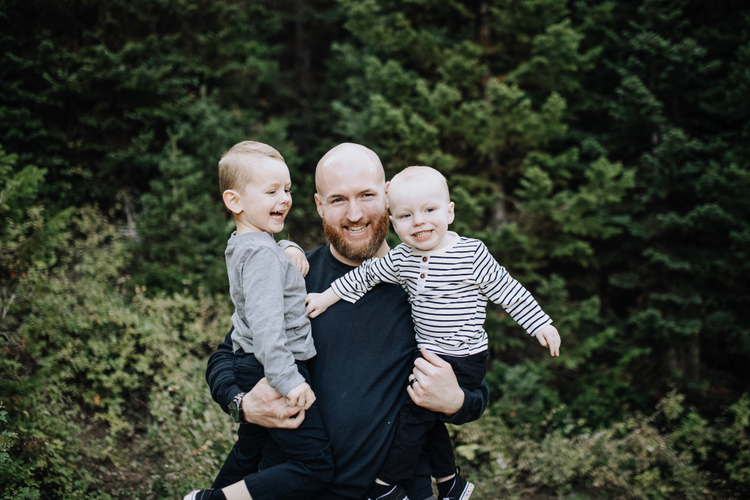Drop assumptions and make a connection instead

In recognition of Veterans Day in the United States, Adobe employee Paul Peterson talks about the importance of looking past assumptions.
When Paul Peterson traveled as a missionary for his church as a young man, it was a turning point for him. He knew that many in Japan, the country he was visiting, didn’t share his same faith, and he was excited to teach.
To his surprise, however, he found that he ended up becoming the student, as he began understanding that there are great people across the world who follow different religions or even no religion at all.
In the story he shared during Adobe For All Week, Adobe’s annual internal diversity and inclusion event, Paul discussed how this experience changed his worldview and informed his work as a Religious Affairs Specialist in the U.S. National Guard.
We talked with Paul about what it was like to share his story, and why it’s important to forget assumptions and aim instead for empathy and connection.
Why did you feel it was important to share your story broadly with employees?
I wanted to share that people who join the military come from all walks of life, just like most other organizations. I feel like people have assumptions about the military, that we’re a bunch of muscle heads who don’t have emotions. I’ve sometimes felt somewhat invisible because of those assumptions, because that’s definitely not who I am. I think everyone deserves to belong and have their voice heard, and if my story touches one person or it helps them change their point of view, I’d be very happy.
What was it like sharing your story with such a large audience during Adobe for All Week?
Admitting that I’m a man of faith can in some ways be nerve-wracking, because there are a lot of assumptions about who I am and what I believe, so I was a little nervous. I know there’s a lot of mixed emotion about what faith does and doesn’t mean, but I actually really enjoyed sharing my story because it’s not one that I get to tell very often. From the responses I received from other Adobe employees, I think a lot of people agree that we all need more understanding, trust, and empathy.
What does your role as a Religious Affairs Specialist involve?
There are two main areas that I participate in. I don’t perform faith services, but I help the chaplain coordinate them. It’s doesn’t include proselytizing or trying to “convert” anyone to my faith. It does include ministering, though, such as checking in on and connecting with people, and making sure they’re OK—because being away from home for so long can get intense. The other part is religious advisement, which is providing insight about local religious factors and considerations.
How has your work in that role affected how you approach other parts of your life?
I learned that the more I worked toward building relationships, the more people would open up. Checking in on people and showing empathy to build those relationships; that’s infused in every part of my life. I want people to know that I care. I’m here to make sure they’re doing okay, that they have the resources that they need, and that they know they have someone to talk to. This has come through at work, especially. Even if we have different beliefs or backgrounds, it helps me remember to love and support my Adobe teammates. We’re all on the same team.
What would you like civilians to know about military service?
I want people to know that those who join the military commit to serve and to protect the nation. I think about reactions experienced by soldiers who served in the Vietnam War. I don’t want anyone to have to go through that because, even if you disagree with a conflict, these men and women put their lives on the line. Each one of them has a story that you don’t know, and more often than not, their motivations for serving are to protect and lift others up.
I also feel I’m a better person now than I was when I got into the military. Looking at the challenges we are all facing right now, I’m grateful to have learned and want to share that difficult experiences have the opportunity to sharpen and refine you into something better.
What is the importance of Veterans Day to you?
Veterans Day is a time to remember those who have gone before. My dad and grandpa served, and many other individuals have gone through so much more than I have. It’s a day to show my gratitude for the things that the men and women who served before me did, not just for our nation, but in laying the groundwork for the freedoms my family enjoys—and to be thankful for their sacrifices, especially when I don’t feel like I’ve had to sacrifice the same things. We stand on the shoulders of giants, and I am grateful for everything they’ve done.
To learn more about how Adobe is recognizing and valuing veterans, read the latest blog from Mark Lipscomb, Executive Sponsor of Veterans at Adobe.